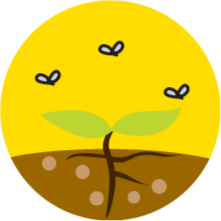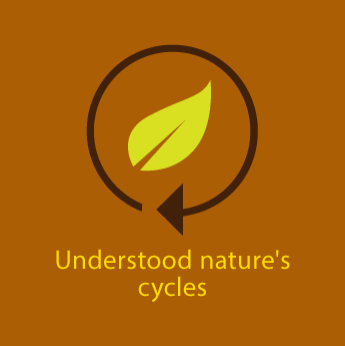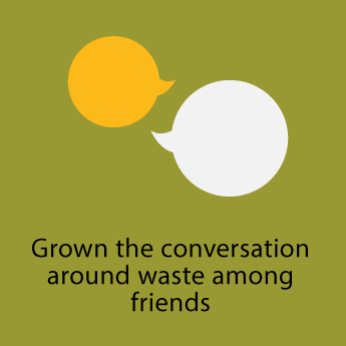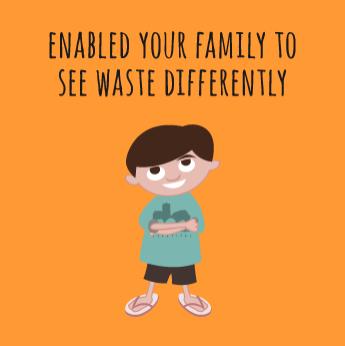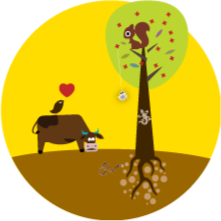Growing with mature compost
-
For seeds
For seeds use 1 part compost to 3 parts soil. Or use 1 part soil, 1 part compost and 2 parts cocopeat.
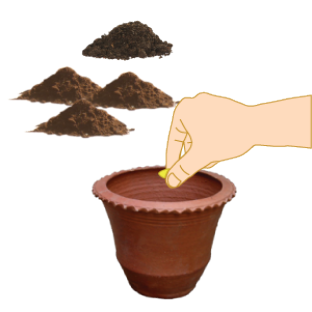
-
For transplanting
For seedlings or transplanting use 1 part compost to 2 parts soil. Or you can use 1 part soil, 1 part compost and 1 part cocopeat.
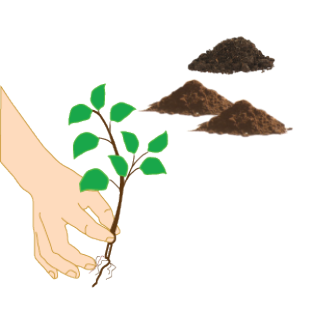
-
For garden beds
As you dig up and prepare your garden beds, add compost and mix it with the soil. It's a great amendment for both sandy and clay soils.
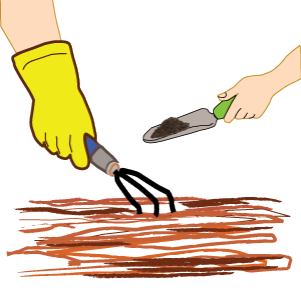
-
As top dressing
Spread compost on the surface of potted plants. Water will carry the nutrients into the soil below. This is called top-dressing. Top-dress a garden, a tree or even a lawn. Keep the compost away from the base of the plant to avoid pests and disease.
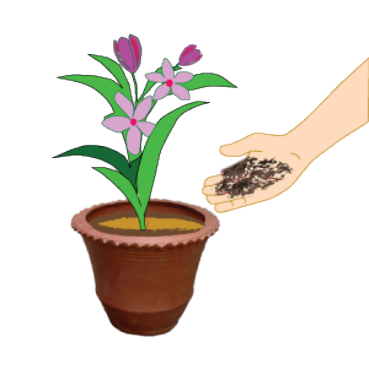
Growing with composting
You may not have a terrace garden, a farm or even a single potted plant at home - no problem.
By making compost you have grown in many ways already. You have...
Yaaaaay! Tada, tada, tada, tada...
Growing just one plant will help you gain deeper empathy & appreciation for...
-
The work of a farmer
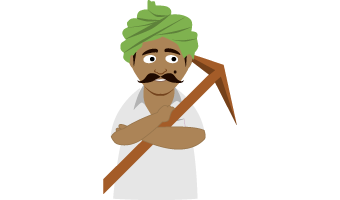
There is hard work that goes into every grain of rice that reaches us. Farmers across the country face many challenges including terrible debt. Growing a plant will help us empathize with the plight and work of the farmer.
-
The notion of 'caring for the earth'
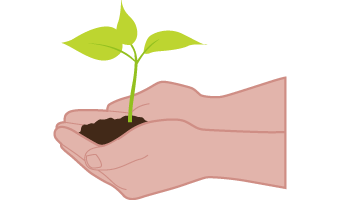
We hear it all the time - don't litter, the ice caps are melting, be careful what you eat - but what does it all mean in practical terms to one person? Grow a plant to discover this!
-
The magic of the interdependence of nature
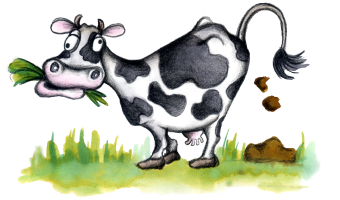
What goes around, comes around. Fruit peels turn to manure and then fruit again. Any pollutants we release are bound to come back in our food, since we sit on top of the food chain!
-
Not wasting food

Every ripe, undamaged fruit is the outcome of the struggle of life to survive & thrive - not to be wasted but cherished! So many others don't have one meal a day.
-
Slow food

We all know fast food but have you ever considered the value in slow food? A plant may help you understand this better.
-
Local produce
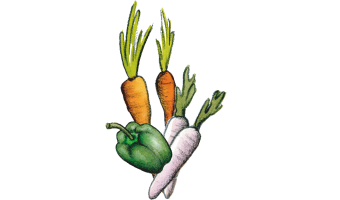
The closer the origin of your food, the less time, energy and fuel has been spent to reach you. It is probably healthier for you too as local foods are suited to local weather and body type. And it does not get more local than growing your own.
Growing the organic way
The compost you made is already organic. Here's tips to keep everything else on your garden organic too
-
Seeds
Some are treated with strong poisonous chemicals - keep away! Look out for ‘open pollinated’, heritage / heirloom organic seeds.
Why organic seeds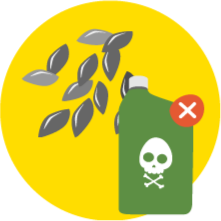
-
Soil
Plant seeds into natural soil. Compost from your kitchen waste is a soil amendment that enables a plant to absorb nutrients from the soil better.
The Benefits of Compost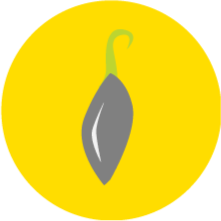
-
Pests
Use organic methods to control pests. Many gardeners make their own pesticide from common household ingredients like chili and garlic.
REPEL PESTS NATURALLY